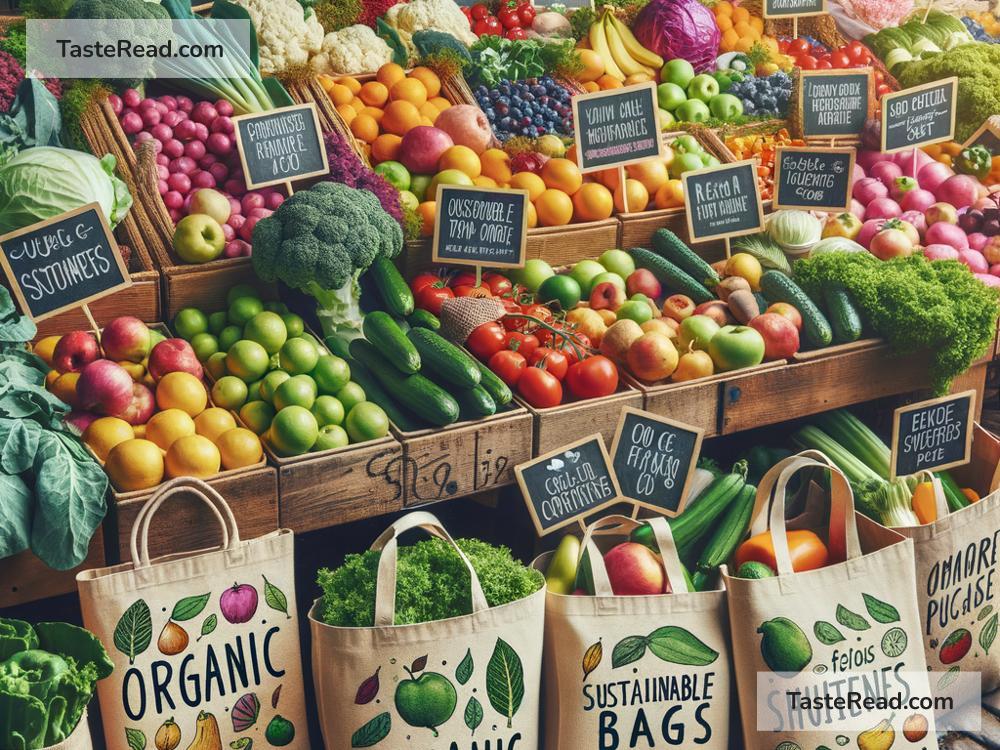Exploring the Benefits of Organic Foods
Nowadays, people are paying more attention to what they eat and how their food is grown. One term that often comes up in food conversations is “organic.” But what does organic food actually mean, and why are so many people choosing it? Let’s explore the benefits of organic foods and understand why this trend is growing worldwide.
What Are Organic Foods?
Organic foods are grown without using synthetic chemicals like pesticides, artificial fertilizers, or genetically modified organisms (GMOs). Farmers rely on natural farming methods, such as composting, crop rotation, and the use of natural pest control techniques. Livestock raised for organic meat, dairy, or eggs are fed organic feed and are not given antibiotics or growth hormones.
When you see a food label marked “organic,” it means the product has met official standards set by government agencies like the USDA (United States Department of Agriculture), ensuring it was grown and processed using organic practices.
Why Choose Organic Foods?
There are many reasons people choose organic products. Let’s break them down.
1. Fewer Chemicals
One major benefit of organic food is that it contains fewer harmful chemicals. Conventional farming often relies on synthetic pesticides and fertilizers to grow crops faster and protect them from pests. Unfortunately, residues from these chemicals can remain on the food we eat. Over time, exposure to these substances may harm our health. Organic farming avoids synthetic chemicals, meaning fewer residues land on your plate.
Choosing organic food can help reduce your risk of consuming these potentially harmful substances.
2. Better Nutrition
Some studies suggest that organic fruits, vegetables, and grains may have higher levels of certain nutrients, like vitamins, minerals, and antioxidants. Antioxidants are important for our health because they help protect our cells from damage caused by free radicals, which contribute to aging and diseases like cancer.
Since organic farming focuses on soil health, the plants that grow in these nutrient-rich soils tend to produce more wholesome food. While not all scientists agree, many believe that organic food offers better nutritional quality.
3. Improved Taste
Many people who eat organic foods say they taste better than their conventional counterparts. This might be because organic crops grow at their natural pace without being rushed by artificial fertilizers. When plants grow slowly in rich, healthy soil, their flavors often become more pronounced.
If you’ve ever tasted a sun-ripened organic tomato, you may have noticed how rich and flavorful it is compared to a conventionally grown one.
4. Environmental Benefits
Organic farming isn’t just good for us—it’s also good for the planet. Conventional farming methods can harm the environment by polluting soil, water, and air with chemicals. Organic farming reduces pollution and prioritizes practices that protect the earth. For instance, instead of using chemical sprays, organic farmers rely on natural methods like planting certain flowers to attract helpful insects that eat pests.
By choosing organic foods, you support farming practices that are kinder to nature and help preserve biodiversity.
5. Fewer Antibiotics and Hormones
When animals are raised organically, they live in better conditions compared to those in conventional farming. Organic livestock are not given antibiotics or growth hormones, which are commonly used in non-organic production to speed up growth or prevent disease in overcrowded environments.
Eating organic meat, eggs, or dairy means avoiding traces of these drugs, and it also reflects a more humane treatment of animals.
6. Supports Local Farmers
Organic products are often sold at farmers’ markets and local stores, so choosing organic can help support local farmers who care about the environment and sustainable farming. Many small farmers rely on organic methods to offer fresh, seasonal products to their communities. Buying organic food helps boost the local economy and ensures these farmers can continue their eco-friendly practices.
Are There Downsides to Organic Foods?
While organic foods have many benefits, there are a few things you should keep in mind. Organic products are often more expensive than non-organic ones. This higher cost comes from the more labor-intensive farming methods and lower crop yields compared to conventional farming.
Also, while organic farming avoids synthetic pesticides, natural alternatives are often still used. They’re generally safer for humans but can still pose risks in certain situations.
Finally, organic certification takes time and effort, so not every farm follows these standards even if their practices are eco-friendly. If you’re buying organic food, it’s always a good idea to look for official labels to ensure you’re getting what you’re paying for.
How to Start Eating Organic Foods
If you want to switch to organic foods, you don’t have to make drastic changes overnight. Here are some simple tips:
- Start Small: Focus on buying a few organic items, like fruits or vegetables that you eat the most.
- Prioritize “Dirty Dozen”: Certain produce items, like strawberries or spinach, often have the highest pesticide residues. These might be worth buying organic.
- Visit Farmers’ Markets: You can find fresh organic foods at reasonable prices while supporting local farmers.
- Cook More at Home: Making meals at home lets you choose the ingredients you want, including organic options.
Conclusion
Organic foods offer many benefits, from reducing exposure to chemicals to promoting better environmental practices. While they may cost more, many people find that the advantages are worth it for their health and well-being. Whether it’s eating more nutritious, flavorful food or supporting local farmers, choosing organic is a step toward living a healthier and more sustainable life.
As more people discover the benefits of organic foods, this movement is likely to grow—allowing all of us to enjoy fresher, cleaner, and more eco-friendly meals!


